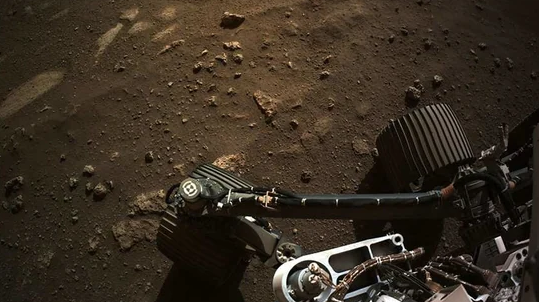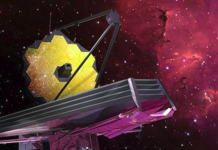The Perseverance rover, sent by American space agency Nasa to explore the surface of Mars, has made a surprising discovery. The rover’s latest findings suggest that the bedrock it has been driving over since landing 10 months ago is made of volcanic lava.
Nasa scientists, who look after the mission, say the discovery was “completely unexpected”. Till now, the scientists believed that the layered rocks which Perseverance took photos of were sedimentary.
Nasa’s Jet Propulsion Laboratory (JPL) said that the discovery has the potential to accurately date the critical events in the history of the Red Planet.
It also said that the rocks in the Jezero Crater, where Perseverance is carrying out its discoveries, have interacted with water multiple times, adding that some rocks even contain organic molecules.
The findings were announced at a news briefing at the American Geophysical Union fall science meeting in New Orleans.
Scientists were always wondering about the composition of the rocks found on the Martian surface. “The crystals within the rock provided the smoking gun,” said Ken Farley, Perseverance project scientist at the California Institute of Technology in Pasadena, California.
To understand the composition of the rock, Perseverance took a sample using a drill installed at its robotic arm. The drill can grind, or abrade, rock surfaces to allow other instruments like Planetary Instrument for X-ray Lithochemistry (short form PIXL) to map the elemental composition of the rocks.
One such sample taken on November 23 showed that the rock had an unusual abundance of large olivine crystals engulfed in pyroxene crystals.
“A good geology student will tell you that such a texture indicates the rock formed when crystals grew and settled in a slowly cooling magma – for example a thick lava flow, lava lake, or magma chamber,” said Farley.
The Perseverance rover has been exploring a four-square kilometre patch of the Jezero crater floor since its landing in search of a scientifically interesting target to collect Martian rocks. The rover is carrying over three dozen titanium tubes to collect the sample.
The scientists have identified the Jezero Crater as an ancient lakebed that gradually dried up as the climate on the Red Planet changed. They sent Perseverance to collect rocks from the crater since evidence of life on Earth is often preserved in the mud and sand deposited at the bottom of the lake.
The Perseverance rover landed on the Jezero Crated earlier this year. It is carrying with itself the Ingenuity helicopter, which became the first vehicle to fly on Mars under its own propulsion system. The copter has so far completed 15 test flights on the surface.















